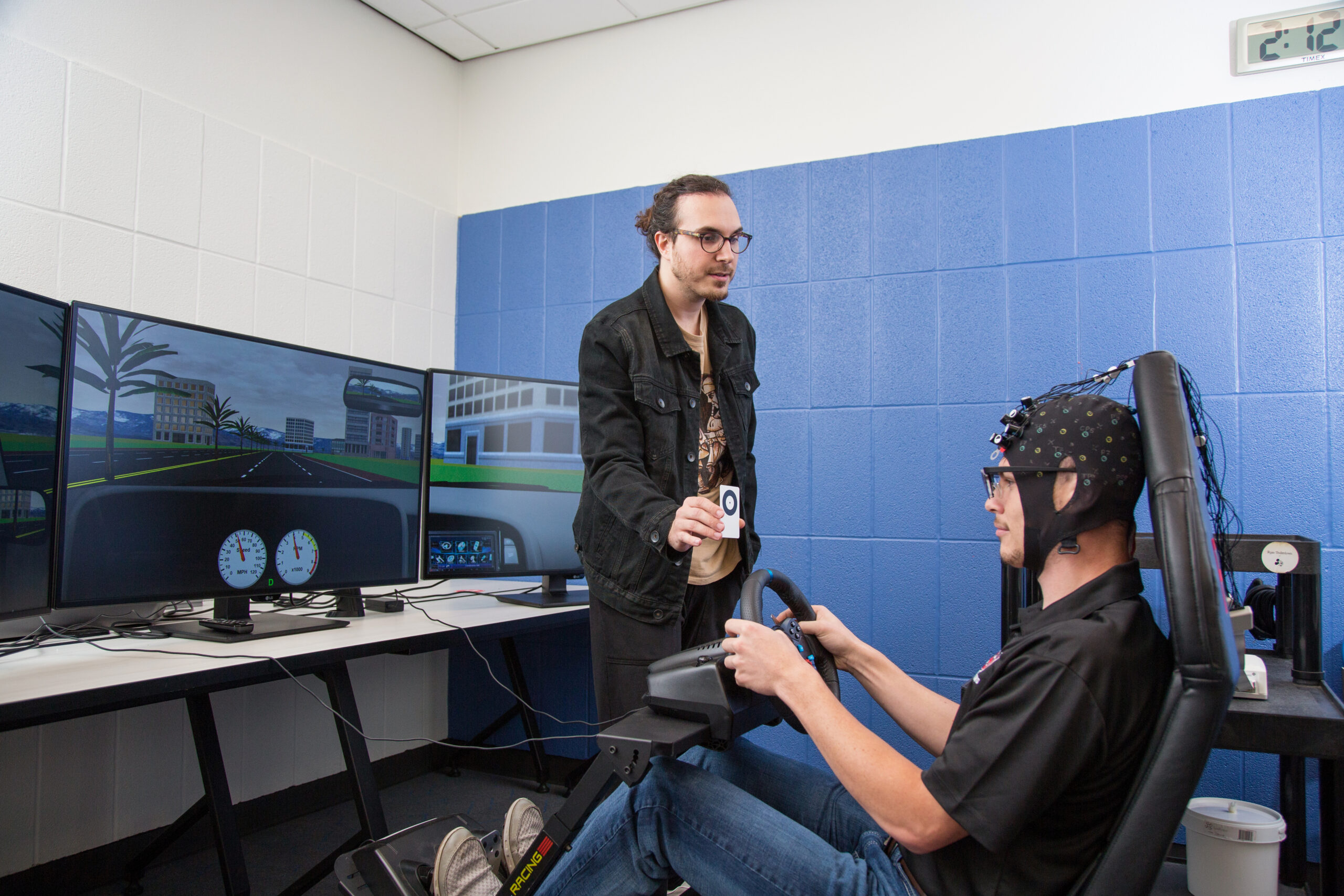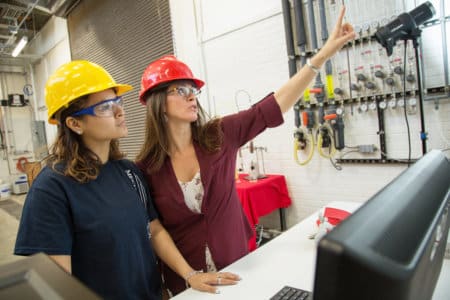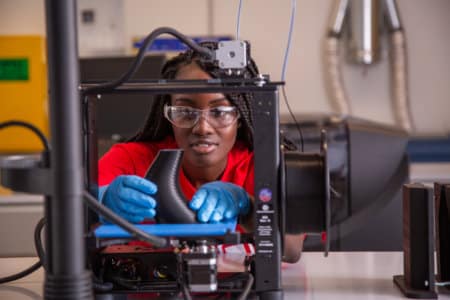In the rapidly evolving realm of technology, the integration of Artificial Intelligence (AI) has become a game-changer across industries. At Lamar University, all departments actively employ AI technology to address real-world challenges. The university offers graduate degrees in Mechanical, Electrical, Civil, Chemical, and Industrial Engineering at the master’s and doctoral levels.
Lamar University is nationally ranked #3 and holds the prestigious #1 position in Texas for return on investment, according to Payscale.com in 2023. This success largely stems from its focus on equipping students with essential skills. Recently developed courses have specifically covered sensor systems, data analysis, software development, and AI skills.
Enrique T. Padilla, a master’s thesis student in Industrial Engineering, highlights the practical impact of the focus on software development. “While working on my thesis, I utilized Python to create software employing Large Language Models for automated data summaries,” he explains. “The emphasis on software development in the program significantly aided my thesis work and job search. Dr. Marquez’s heuristic methods were particularly instrumental in enhancing my understanding of optimization algorithms and their effective implementation.”
Many faculty members have recently secured new research funding for advanced modeling projects, providing students with valuable networking opportunities at the most affordable tuition and fees among Texas universities. For instance, Professor Dr. Maryam Hamidi obtained US$173,636 in research funding from the Texas Department of Transportation for a project evaluating ship and barge traffic along the Texas Gulf Intracoastal Waterway. Dr. Qin Qian received US$448,625 from the US Environmental Protection Agency to enhance water quality in the Gulf of Mexico. Additionally, Dr. Helen Lou’s US$300,000 grant from the National Science Foundation focuses on industrial cybersecurity.
Dr. Lou’s research also explores trustworthy AI (TAI) for the chemical process industry (CPI). Her findings indicate that TAI can augment traditional first principles and black box models, offering various benefits for improved process optimization, control, troubleshooting, debottlenecking, and overall performance enhancement in the CPI.
An outstanding feature of Lamar University is its integration of AI as a fundamental technology for solving real-world issues in diverse domains such as robotics, controls, reliability, safety, sensors, and supply chain management. For instance, the industrial engineering department has introduced cutting-edge graduate coursework such as “User Experience with AI” and “AI for Industrial Engineering,” enabling students to delve into rapidly evolving AI techniques like Large Language Models, Transfer Learning, and Image Processing.

All departments at Lamar University employ AI technology to address real-world challenges. Source: Lamar University
Dr. Yueqing Li, associate professor of Industrial and Systems Engineering, pioneered the teaching of “User Experience with AI.” This course covers the theory and practice of designing, implementing, and evaluating software user experiences, focusing on interaction with AI models. A group project involves creating a user interface and generating diverse AI-related ideas like scheduling assistants, text summarization, sign language translators, and shopping bots. The project follows a structured UX framework, progressing through project proposals, storyboards, low-fidelity prototypes, user testing, and working prototypes.
Highlighting the significance, Dr. Li notes, “AI significantly impacts our daily interactions with the world. Incorporating AI into the curriculum prepares our students for their future careers.”
The practical application of AI is a cornerstone of Lamar University’s approach. Dr. Alberto Marquez, associate professor of Industrial and Systems Engineering, will introduce “AI for Industrial Engineering” in the upcoming semester. This course engages students in solving real-world industrial engineering tasks using AI solutions, from software development to automating business processes.
Recent doctoral and master’s students have already made impactful strides using AI, such as predicting equipment failure, analyzing free-response survey data, and identifying the use of Personal Protective Equipment (PPE). “As models become less expensive to develop and run due to transfer learning, improved computer hardware, and better software development frameworks, a wide range of use cases will become cost-effective,” says Dr. James Curry, Chair of Industrial Engineering.
Lamar University’s commitment to blending theoretical knowledge with hands-on AI applications ensures its graduates are proficient in the latest technologies, ready to address tomorrow’s challenges. Just ask Pooyan Mobtahej, a doctoral graduate in Industrial Engineering. “My experience at LU has been unparalleled,” he asserts. “The College of Engineering and Industrial and Systems Engineering department have greatly supported my career. For my research project, I collaborated with Dr. Maryam Hamidi to detect anomalies for predictive maintenance in gas compressor systems using deep learning techniques. Courses in programming by Dr. Curry, computer vision by Dr. Zhang, and automation by Dr. Liu enhanced my skill set.”
To explore more about Lamar University and register your interest in the Engineering programs, click here.
Follow Lamar University on Facebook, Instagram, Twitter and YouTube













